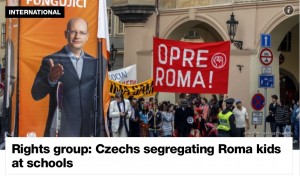The current Indian Ambassador to Hungary, Malay Mishra is currently studying the Rroma communities in Hungary as part of a Ph.D. he is currently registered for at Corvinius University. He is looking at parallels and at what could be learned from India in terms of integrating disadvantaged minorities.
We cannot but agree with his statement that in spite of 1’200 NGOs active in Hungary for Rroma, there seem to be precious few recipients, especially in the country side.
- Indian example may help Hungary’s Roma. In: The Budapest Times. 15.05.2015. http://budapesttimes.hu/2015/05/15/indian-example-may-help-hungarys-roma/

